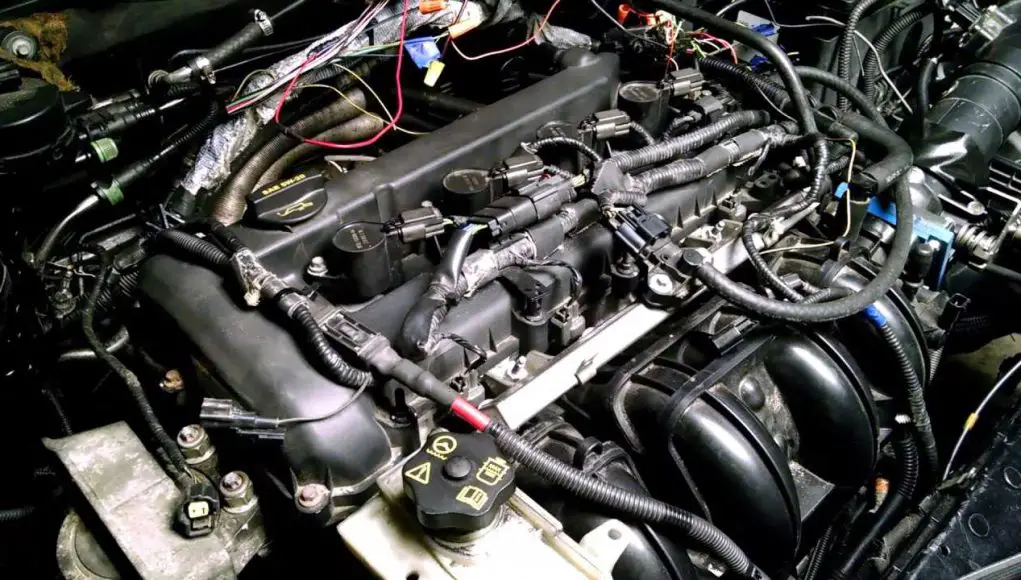Even though modern engines are resistant to pinging, engine pinging or spark knock still happens. This is EXACTLY what you should listen for.
If your friend mentions your engine might ping and you should get it checked out, you can use this video I’ve found as a reference to compare what proper engine pinging sounds like. A redditor uploaded a video of this 2014 Ford Transit Connect with a 2.5L Durtatec gasoline engine pinging really badly and this is what he heard.
Do you hear that rattling sound?
Pinging is best described as “Like a pile of marbles dropping onto metal.” Another describes pinging as “like marbles in a tin can.”
That sound shows that there’s an underlying problem easily fixed by putting in the right octane gas or temporarily increasing the octane rating at your next fill-up.
If those easy fixes don’t work, you can try many products found at your local auto parts store that help to clean carbon deposits, a common cause of engine pinging in today’s modern engines.
You can also just take a long drive. By bringing up your engine to operating temperature and holding it there for a long time, excess carbon just gets burnt up. A good half hour drive at highway speeds should do the trick.
What exactly is engine pinging?
Engine pinging results from improper combustion which usually occurs when the air/fuel mixture combusts too early.
In a new car with a brand spanking new engine with the proper fuel, there will be no pinging because everything’s perfect.
In an ideal world, everyone would take drives that allow engines enough time to warm up and get to normal operating temperature. But many people take many short trips too often.
What happens when you drive and don’t allow your car’s engine enough time to warm-up is that you get your engine running a rich mixture, your engine using lots of fuel.
According to one mechanic on Stack Exchange,
- cold fuel is harder to vaporize
- cold fuel is likely to condense on cold engine parts, making its burning harder, less predictable
So more fuel is added than necessary – using a richer AFR – in anticipation that a decent proportion of fuel will not be burned. In other words, during cold starts the effective AFR is leaner than expected, so the mixture is enriched to compensate for that.
All that unburnt fuel left becomes carbon deposits in your engine’s combustion chambers. Enough carbon deposits can raise the compression ratio of your combustion chamber and/or facilitate hot spots to form thus causing pre-ignition or engine pinging.
This is what engine pinging looks like below.
If you didn’t already know, octane measures how resistant the fuel is to pre-ignition and detonation. The higher the octane rating, the more resistant the fuel is to pinging. Modern engines have higher compression ratios thanks to engineers pushing the boundaries to make a more efficient engine. Higher compression ratios allow engines to extract the most power it can from an air/fuel ratio.
If you use a lower octane in a car that requires high octane, pinging can occur. And even if you’re using the right octane, if you take a lot of short trips and you have too much carbon deposits, as mentioned, you have a higher compression ratio and now must use a higher octane until you can get your combustion chambers carbon free.
So that’s what engine pinging sounds like, some ways to get rid of it, and what engine pinging is exactly.
Have anything to add or need clarification on anything? Let me know in the comments.




Nice example. Only one I could find.